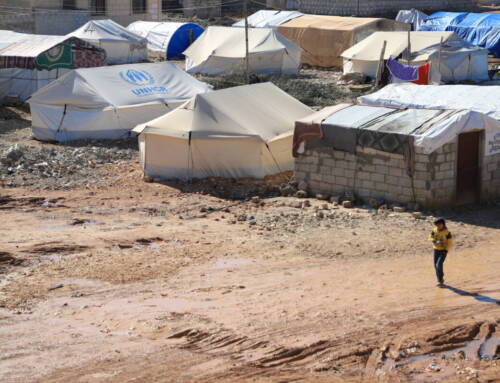Rebel infighting ‘enough to thwart the revolution,’ says FSA spokesman
July 16, 2013 The assassination of FSA commander Kamal Hamami […]
16 July 2013
July 16, 2013
The assassination of FSA commander Kamal Hamami in Latakia last week has many concerned that infighting between the Free Syrian Army and Islamist rebel groups, namely the al-Qaeda affiliated Islamic State in Iraq and Sham, will undermine the revolution’s aim to bring down President Bashar al-Assad. At a time when the Syrian Army is gaining momentum around Syria, Morad al-Ayham, spokesman for the FSA’s Revolutionary Military Council in Idlib, tells Abdulrahman al-Masri that this “internal war” plays right into the regime’s hands. Al-Ayham, 26, says that if the rebels continue down this road, “their bullets will be aimed at fellow rebels, empyting their ammunition and decreasing their numbers.”
Q: What is your opinion on the assassination of Kamal Hamami in Outer Latakia, and how did it benefit the ISIS?
A: Assassination is a word associated with terrorism. What is strange is that we used to work together, coordinating and sharing the same operation room, when [they] were called Jabhat al-Nusra and, later, the State of Iraq and Sham. Now it has [devolved] into assassinations and assaults, and now with the assassination of the battalion leader. This [assassination] has a negative impact on the revolution, as it validates the regime’s claims [about the rebels being terrorists].
With this assassination, the path of the revolution has changed from war against the regime to [internal] war, which is what the regime wants. It achieves the regime’s agenda.
Q: According to some in the FSA leadership, the assassination was a declaration of war by the Islamic State. What is your opinion, will we see a war between the FSA and the ISIS in addition to their war with the regime?
A: Assassinations benefit the regime by changing the revolution from fighting against it to fighting the FSA, meaning that war will be between the FSA and the ISIS. Trends indicate that if this war begins, the regime will restore the areas that are now under the control of the FSA, because [rebel] bullets will be aimed toward fellow rebels, thus emptying their ammunition and decreasing their numbers.
Q: If the FSA and the ISIS fail to cooperate in Latakia, will the revolution fail there?
A: Yes, and the revolution’s fate will not just be a single failure [in Latakia] but failure will also spread to the rest of Syria. The truth is that this game was the regime’s plan [all along], and it is now being executed. It will succeed if it is not halted before the flame reaches other cities because the regime has been selling the terrorism angle since the beginning of the peaceful protest movement. These assassinations are enough to thwart the revolution and incite a civil coup against it.
History reminds us of the Algerian revolution that failed because of this, where the mujahideen were wearing certain clothes, so the security units started wearing the same clothes and killing their leaders, which led to a fight between them and then a civil coup against them.
That is why the revolution failed in Algeria, and our revolution is in danger. To give an example, when the regime forces took back Baboleen, a town in Outer Idlib that was controlled by the rebels, the army got inside Baboleen by wearing Jabhat al-Nusra uniforms and infiltrating the rebels without them noticing, killing more than 80 heroes of the revolution and taking control of the [important road through the town].
Q: If the revolution succeeds, will the ISIS stay in Syria and influence the new state? What are their plans after the revolution?
A: The success of the revolution would mean many possibilities. The name itself, the State of Iraq and Sham, means it seeks to establish a state here, [in other words] they would stay here, but the important question is will people still welcome ISIS after what it has done?






